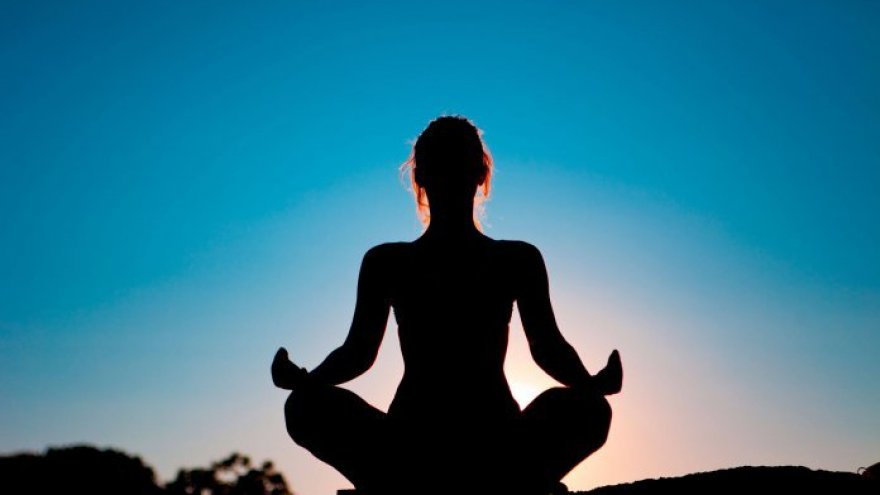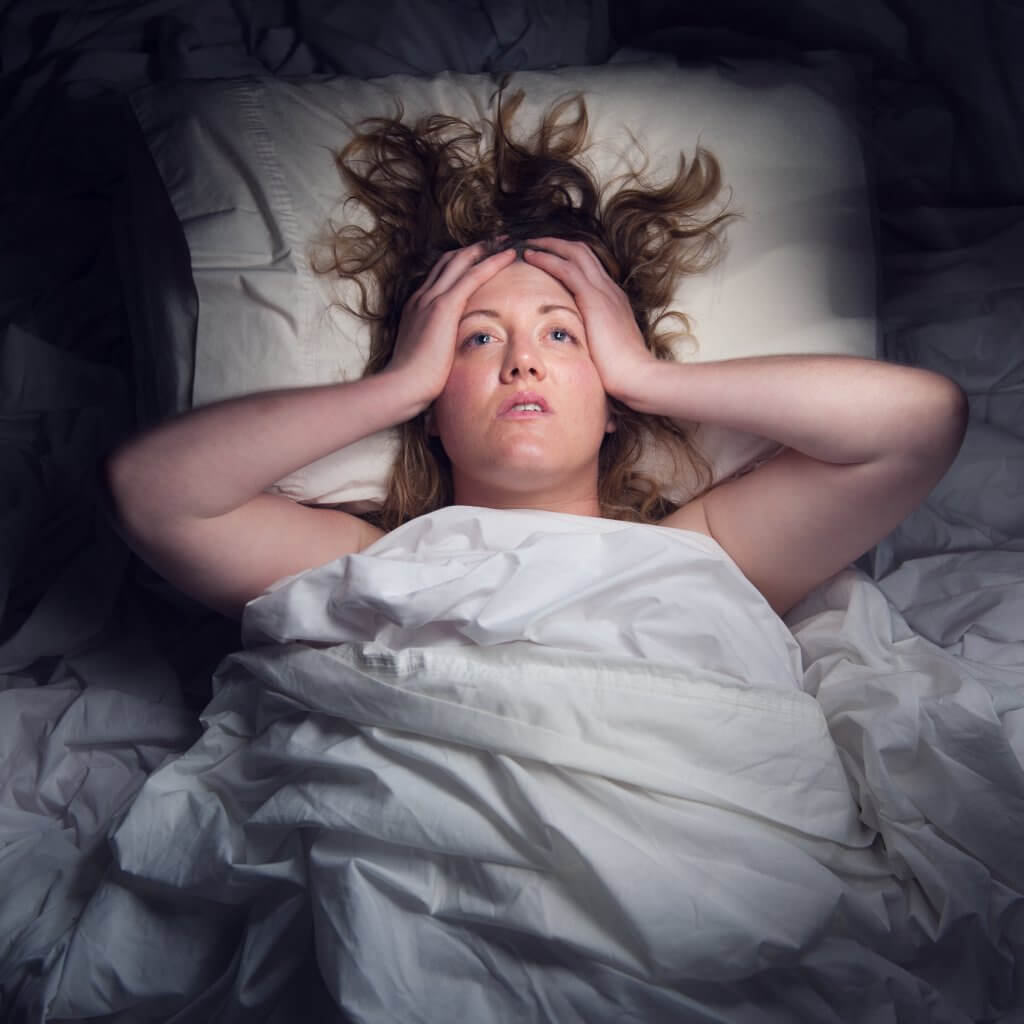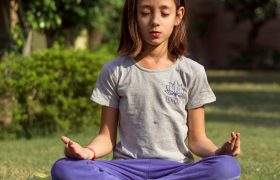Healthy Ways to Get Better Sleep as a Parent

If you find yourself sometimes counting sheep at odd hours of the night, you’re not alone. Roughly 30% of adults experience short term insomnia at some point in the year, with another 10% citing it as a chronic issue, according to the American Sleep Association. The average adult should be receiving somewhere between seven and nine hours in a night, but plenty are reporting difficulty in achieving this.
The National Sleep Foundation defines insomnia as difficulty falling or staying asleep. Acute insomnia is defined as being occasional and usually instigated by life circumstances such as stress or dietary habits. Chronic insomnia is insomnia that occurs three or more times per week, for a duration of at least three months.
Experts suggest that insomnia might be most broadly viewed as a discrepancy between the body’s sleep and wake cycles; we can only toggle to one at a time, and either a lack of sleep drive or an excess of waking drive can disrupt our rest. Insomnia can be irritating but isn’t dangerous unless it persists and/or affects your daily functionality.
Why Sleep is Important

Our bodies are constantly at-work, even when we’re resting. Sleep is a period in which major rejuvenation and repairs occur throughout muscles, tissue, and hormonal balances. (Ever feel emotional or off-balance when you’re sleep-deprived? That’s your body’s chemistry telling you it needs a good reset. And some of those same hormones affected by sleep deprivation could be the cause of gained or stored weight, even in the face of a healthy diet and exercise regimen.)
And sleep isn’t just about physical enhancement. Our body needs time to process and store the data we collect throughout the day. While initially we store information in short-term capacities, sleep allows us to digest it all in a more permanent (and thus useful) fashion.
Setting as regular a sleep pattern as you can muster is the best course of action for optimal results. Of course we are all apt to miss a few hours here or there, and paying back “sleep debt” is important, but remember that hibernating after long stretches of sleep deprivation does not reap all the benefits of a healthy, adjusted sleep routine.
Our Sleep Cycle, Explained
Your circadian rhythm, or sleep/wake cycle, is a series of patterns of activity occurring throughout the night. It can be divided into two categories (NREM or Non Rem Sleep, and REM or your Rapid Eye Movement cycle). During the first few seconds to seven minutes of rest, the eye movement slows down and your brain creates alpha and theta waves.
Waking brain waves are beta waves, and when we are fully asleep, our brain produces delta waves. After about the seven minute mark, the brain produces increased frequencies but then slows back down. Then come the delta waves, at which point you are considered to be in a “deep” state of sleep, in which the body repairs muscles and tissues. Consolidation of memories and data occur during REM, which our body cycles through roughly five or six times in a night, starting around the 90 minute mark of rest. REM sleep is more difficult to wake from and tends to be the period during which dreams take place. Cat naps and quick periods of rest can be helpful as pick-me-ups in the middle of the day, but it’s important to try to get in some solid REM sleep at night to be able to perform at your best.
Causes of Insomnia

Insomnia can occasionally be a biological issue that requires more thorough medical attention, but more often than not, there are outside influences contributing to restlessness, and true sleep disorders are rare. So if you find your sleep cycle suddenly out of whack, don’t panic. Consider, instead, the following factors.
Stress
Stress and sleep deprivation are one of those awful Catch-22’s, wherein the cycle just perpetuates itself. Sleeping less can lead to stressing more, and more stress can lead to less sleep. Most of this boils down to the body’s production of Cortisol. Cortisol is the hormone that regulates a great deal of your day, due to its effect on the endocrine system. The endocrine system is responsible for your metabolism, blood sugar, and sex/reproductive hormones. Spikes in Cortisol have been linked to weight gain (the body, in its heightened state of stress, naturally holds onto fat as a survival mechanism) and mood swings, given that our blood sugar and many of our reproductive hormones (estrogen, testosterone, progesterone) influence our feelings of harmony and irritability.
Cortisol weakens the immune system and is linked to depression and anxiety, as well. But a lack of Cortisol is just as dangerous as an excess of it. Cortisol levels should ideally be highest in the morning, inspiring us to wake up and be productive, and then gradually taper off throughout the day, allowing us to sleep at night. Spikes in this hormone can be triggered by a multitude of factors, and stressful situations is one of them. As such, aiming for calming activities close to bedtime might aid in the process of falling asleep.
Diet & Exercise

We all know that what we consume affects our body’s performance, but perhaps we’re not always aware of the multitude of tiny, specific ways in which the two are correlated. Caffeine close to bedtime is one of the more obvious dangers to our sleep cycle, but its not the only disruption we might be flirting with in the evenings. Alcohol can also be a formidable enemy to a good night’s sleep. Both substances can be stimulants, and both cause an uptick in urine frequency, meaning multiple trips to the bathroom in the middle of the night.
High fat and high sugar foods are other things to avoid. Food with tryptophan, on the other hand, can aid in falling asleep. Turkey, milk, eggs, low fat greek yogurt and bananas are all great options if you have to eat within those final few hours before bed. Tryptophan is an amino acid that the body then turns into the B vitamin Niacin, which is responsible for serotonin and melatonin levels, two hormones responsible for proper, healthy sleep.
In addition to eating to aid in restful slumber, consider your exercise routine as well. Studies have shown that individuals who exercise (morning seems to be the best time) experience quicker, less-interrupted sleep at night.
A sedentary lifestyle can lead to the build up of restless energy, which interferes with our body’s ability to power down. Two hours in the gym every morning isn’t necessary (though brownie points to you, if you’ve worked that into your schedule). The recommended prescription is around two and a half hours of moderate aerobic activity and two sessions of strength training each week. Pay attention to building yourself up to a healthy, sustainable routine as over-training actually agitates insomnia.
Mental Stimulation
The most common culprit of over-stimulation before bedtime is: you guessed it, your electronic devices. It’s so tempting to lie in your blanket cocoon and scroll social media or answer just a few more text messages and emails. But the blue light emitted by your gadgets actually repressed the production of melatonin, making it harder to fall asleep. Try to give yourself thirty minutes to an hour of tech-free time before bed. If you absolutely must be in contact with your devices, check for a nighttime setting.
Most phones will actually allow you to program a specific stretch of the day or night in which your screen filters through a warm orange light, rather than the blue, so as not to mess with your circadian rhythm.
Medication Side Effects
Insomnia might be your problem, or it might be your side effect. Plenty of medications list insomnia or trouble sleeping as one of their potential side effects, so make sure to check any information available to see if that’s the case. If you’re taking a prescription, the information should have been handed to you with your medication, and if you’re working with an over the counter drug, try their website. If all else fails, call your doctor and discuss whether insomnia might be a symptom or side effect rather than the underlying issue itself, especially if your sleep deprivation lines up with starting any new drugs.
Natural Sleep Aids

There are, of course, more severe cases of insomnia that might require prescription medication to treat. Said medications, however, can be addictive and induce a variety of other side effects. Always speak to your physician about the best path to take, and remember that there are plenty of other remedies to be tested in the meantime.
Winding Down
Sometimes it’s as simple as adjusting your bedtime routine. In addition to avoiding gadgets and watching your nutritional intake, you might consider meditation in the evenings before you go to bed. Even just five to ten minutes of focusing your energy and calming your mind may improve how quickly you are able to fall asleep. If meditation isn’t your cup of tea, you can try literal calming teas (lavender and chamomile are popular flavors), aromatherapy, or perhaps reading a book. (Stray from invigorating genres like murder mysteries or fantasy; aim for something slower-paced and less likely to activate your adrenal glands.) If all of that proves ineffective, there are also over-the-counter herbal supplements known to aid in fighting insomnia.
Melatonin
Melatonin is actually a hormone produced in the pineal gland of your brain–something the body produces naturally. High levels of melatonin at bedtime are linked to the most successful and satisfying sleep. Melatonin supplements can help reduce the time it takes to fall asleep, with dosages as low as .1 to .3 milligrams. Long-lasting effects have not been studied in humans, but the reported side effects don’t appear to be dangerous, ranging from grogginess in the morning, to weird dreams, to waking up in the middle of the night. You can find Melatonin at your local drug or grocery store.
Valerian Root

Valerian root is an herbal extract that some claim to be helpful in falling asleep more quickly or sleeping soundly through the night. There are not, however, studies to fully support this theory. Based on user reports, it may be more beneficial to take valerian regularly over the span of four to six weeks, rather than on sporadic nights when sleep evades you. It is not recommended to take it for longer than six weeks at a time, however, and some do report feelings of headaches the next day. Additionally, valerian root is considered a sedative and should not be combined with alcohol.
Counting Sheep
Different remedies show varying levels of success for different people. Don’t be afraid to mix and match tactics, though do always speak with your physician concerning supplements or vigorous exercise routines. If you still find yourself lying awake, watching flocks jump wooden fences, try to breathe and accept your circumstances instead of stressing about them, as that will only serve to get in your way. Keep calm and count on; there’s always tomorrow night.







